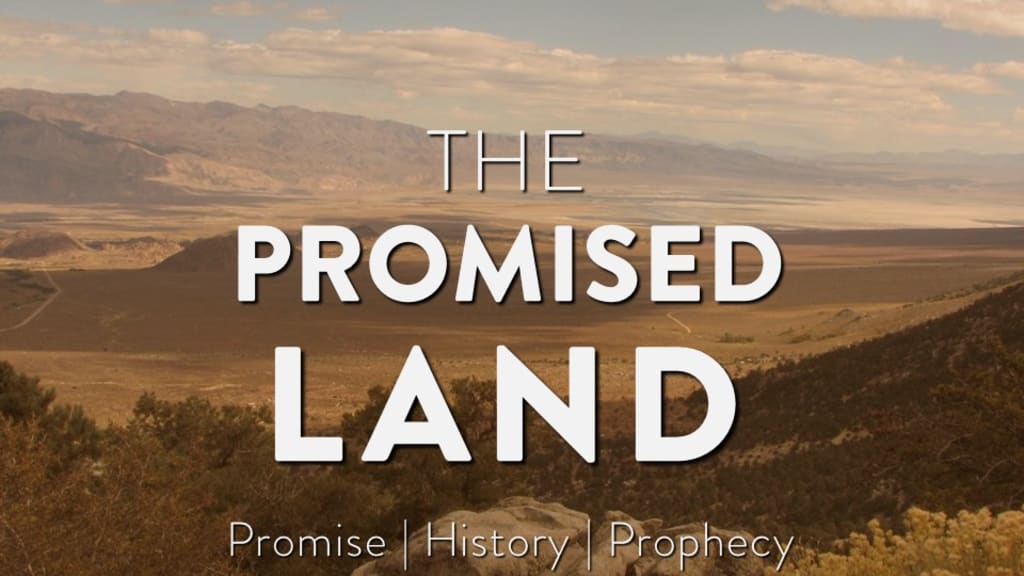Cainan:The Land of Promises
The Land of Promise: A Biblical Exploration

The concept of the Land of Promise, also known as the Promised Land, is a foundational and recurring theme in the Bible. It represents a covenant between God and various figures and peoples throughout biblical history, most notably the Israelites. In this essay, we will delve into the biblical narrative of the Land of Promise, its significance, and its enduring impact on religious thought and history.
1. The Promised Land in the Bible:
The first explicit mention of the Promised Land is found in the Book of Genesis, in God's covenant with Abram (later called Abraham). In Genesis 12:1-3, God instructs Abram to leave his homeland and journey to a land that He will show him. God promises to make Abram's descendants into a great nation and bless them. This land, the Promised Land, is central to the covenant: "To your offspring I will give this land" (Genesis 12:7, NIV).
Throughout the narrative of the Bible, the Promised Land takes on various names, including Canaan, the land flowing with milk and honey. It becomes the destination for the Israelites after their liberation from slavery in Egypt, a journey famously recounted in the Book of Exodus. Moses leads the Israelites through the wilderness towards the land promised to their forefathers.
In the Book of Deuteronomy, God reiterates the promise of the land to the Israelites, emphasizing its abundance and blessings. He commands them to obey His laws and statutes once they enter the land, underscoring the idea that their possession of the land is contingent upon their faithfulness and obedience.
2. Significance of the Promised Land:
The Promised Land holds immense significance in the biblical narrative for several reasons:
a. Covenant: The promise of the land is a foundational covenant between God and His chosen people. It represents a divine commitment to provide a homeland for the Israelites, ensuring their safety, prosperity, and spiritual growth.
b. Inheritance: The Promised Land serves as an inheritance for the descendants of Abraham, Isaac, and Jacob. It embodies God's faithfulness to His promises and His commitment to the well-being of the Israelite people.
c. Spiritual Symbolism: Beyond its physical attributes, the Promised Land carries spiritual symbolism. It is often seen as a symbol of spiritual rest and fulfillment, where the people of God can live in harmony with Him.
d. Center of Worship: The Promised Land is also the location of Jerusalem, where the Israelites built the Temple to worship God. Jerusalem remains a central site of religious significance in Judaism, Christianity, and Islam.
3. Theological Reflection:
The concept of the Promised Land extends beyond its historical and geographical significance. It offers valuable theological insights and reflections:
a. Faith and Obedience: The possession of the Promised Land is tied to faithfulness and obedience to God's commandments. This underscores the idea that God's blessings are contingent upon human response and commitment.
b. Divine Providence: The story of the Promised Land highlights God's providence and faithfulness in fulfilling His promises. It serves as a reminder of God's commitment to His people throughout history.
c. Spiritual Rest: The Promised Land represents a state of spiritual rest and fulfillment. It reflects humanity's deep yearning for a place of peace and communion with God.
4. Contemporary Significance:
The concept of the Promised Land continues to resonate with believers today:
a. Spiritual Journey: Many individuals see their faith journey as a search for their own "Promised Land." It symbolizes the pursuit of a life aligned with God's purposes and promises.
b. Hope and Redemption: The Promised Land offers hope and the promise of redemption, serving as a reminder that God's faithfulness endures despite life's challenges.
c. Justice and Equality: In contemporary discussions, the Promised Land is sometimes seen as a symbol of justice and equality. It inspires believers to work towards a world where all people can experience the blessings of God's promises.
In conclusion, the concept of the Promised Land is a central and enduring theme in the Bible, symbolizing God's covenant, faithfulness, and providence. Beyond its historical and geographical significance, it holds spiritual and theological lessons for believers today. The search for one's own "Promised Land" continues to inspire individuals on their spiritual journeys, offering hope, redemption, and a vision of a world where God's promises are fulfilled.
About the Creator
Raymark Marcos
A Writer and Guitarist
A son of God
A student who's doing a lot of side hustles to earn enough money to be able to go for college.






Comments
There are no comments for this story
Be the first to respond and start the conversation.